Are Pool Windows Safe? Safety Standards & Glass Strength Explained [2025]

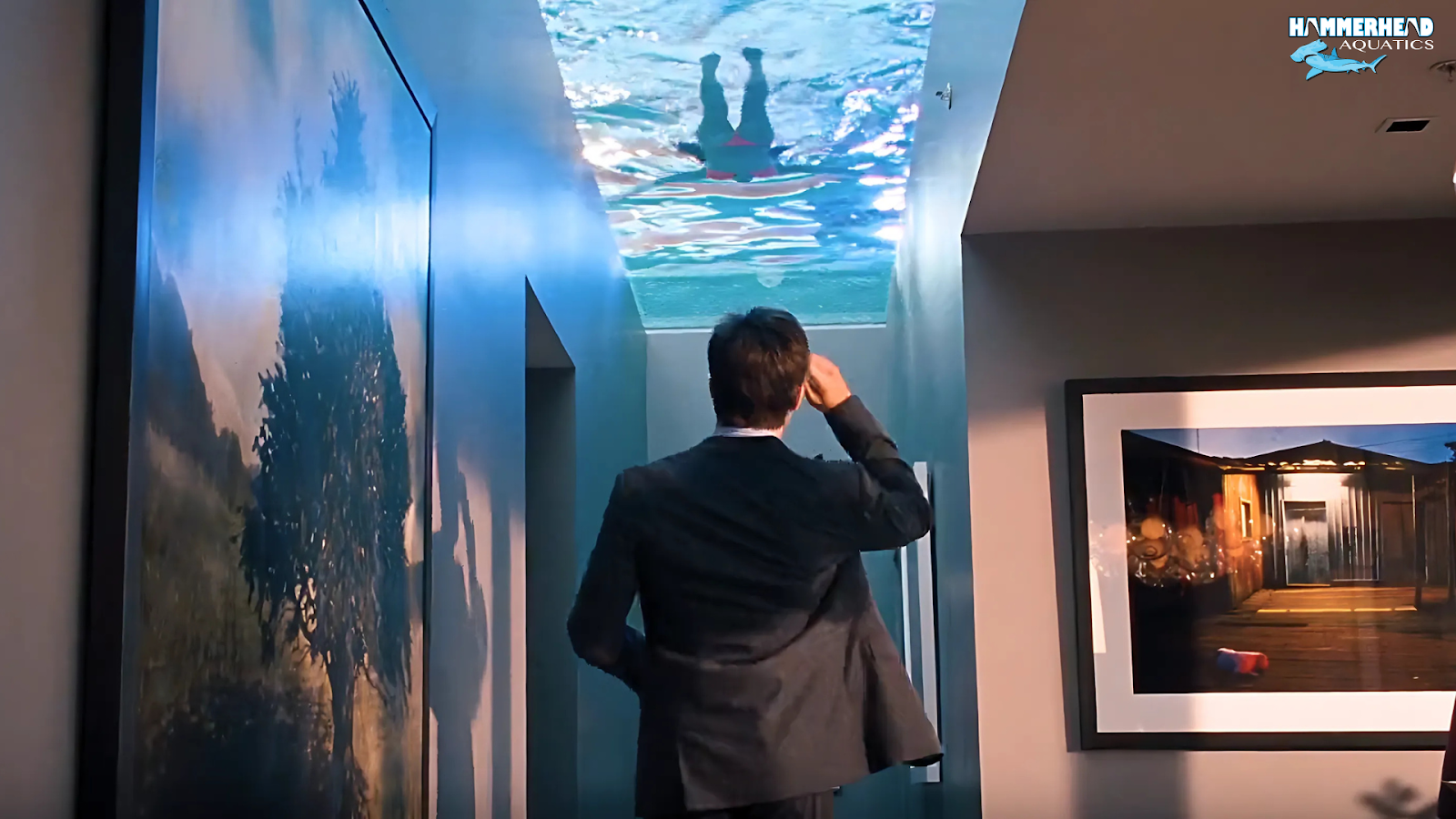
Adding a window to your swimming pool might sound like something straight out of a luxury resort brochure.
Whether it’s a sleek acrylic panel in a rooftop spa or a tempered glass viewing wall in a fitness center, pool windows are definitely a huge investment that helps enhance the overall outlook of the pool and increases the property value.
Now, while you see others using pool windows, you might come across the question “Are pool windows safe?” as a pool window seems quite fragile from the outside.
First, yes, I can vouch that pool windows are safe with all my 2 decades of experience with pool building. However, the pool window safety largely depends on how well it was designed, engineered, and installed.
Now, today, I decided to give you a bit more detail on the matter so that you can justify whether pool windows are really safe. (I’m sure you will be relieved knowing the details.)
So let’s begin.
TL;DR: Pool Window Safety at a Glance
- Engineered for strength: Pool windows are made from tempered glass, laminated glass, or thick acrylic that can withstand massive water pressure.
- International safety standards: Trusted manufacturers test pool windows against impact, hydrostatic pressure, and chemical resistance.
- Failure is rare: Most problems come from poor installation or maintenance, not the glass itself.
- Glass vs acrylic: Glass is scratch-resistant and lasts decades; acrylic is lighter, customizable, and flexible under stress.
- Work with expert pool engineers and certified installers (such as Hammerhead Pools).
- The right frame, sealants, and load testing matter as much as the material itself.
Now let’s get into the details.
What Makes a Pool Window Safe?
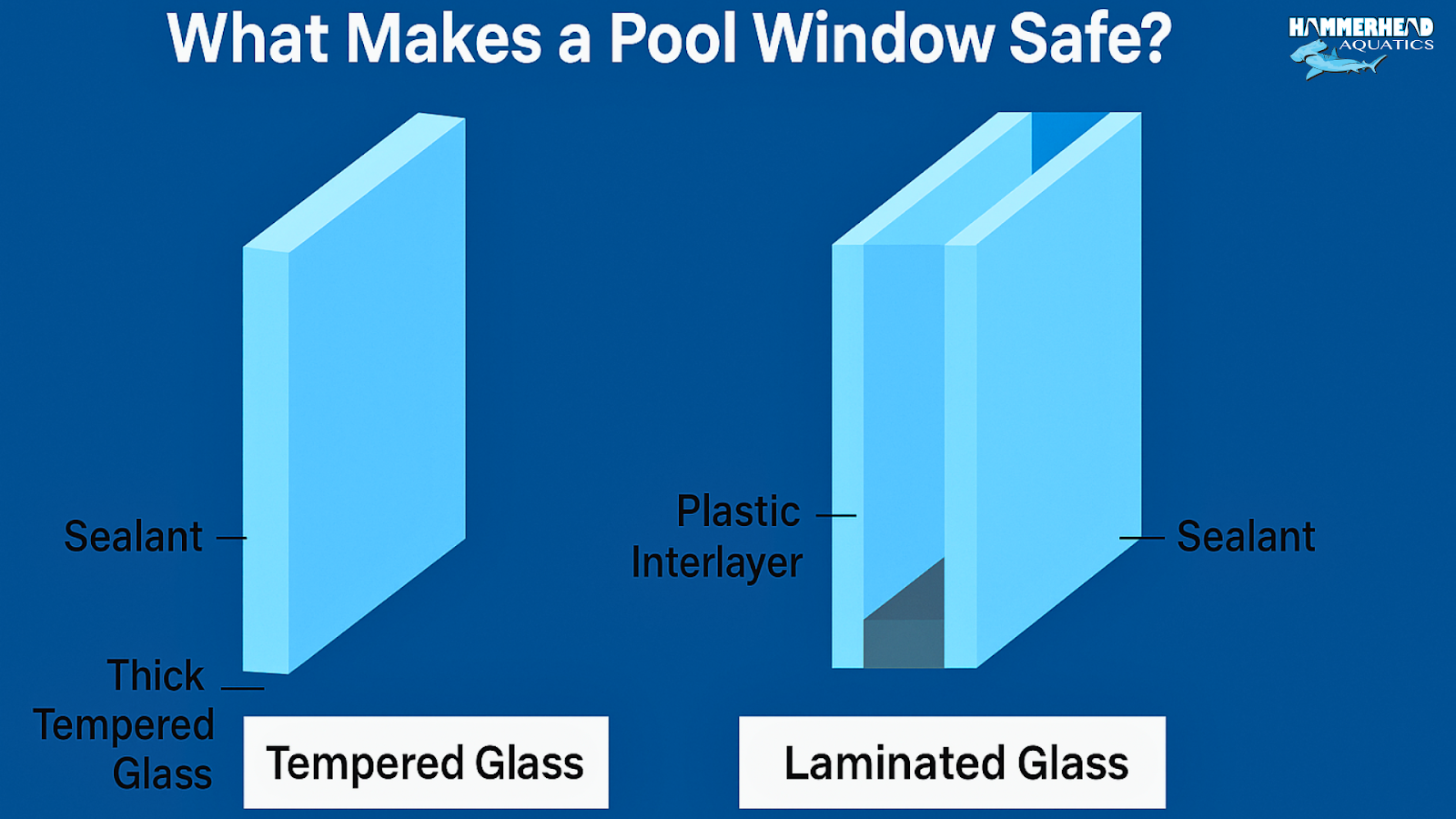
Unlike ordinary household glass, pool windows are engineered to resist extreme forces. Think about it: a single cubic meter of water weighs about a ton. Multiply that across several feet of depth, and you’ll see why safety is all about engineering + material choice.
Key safety features include:
- Tempered glass: Heated and cooled to increase strength 4–5x over normal glass. If it breaks, it crumbles into dull fragments.
- Laminated glass: Multiple layers bonded with plastic interlayers, ensuring cracks don’t lead to shattering.
- Acrylic panels: Thicker, flexible panels often used for large or curved windows. They bend slightly under pressure instead of breaking.
Every window is built thicker than standard building glass and often tested in labs for hydrostatic load (water pressure), seismic stress, and impact resistance.
Pool Window Safety Standards
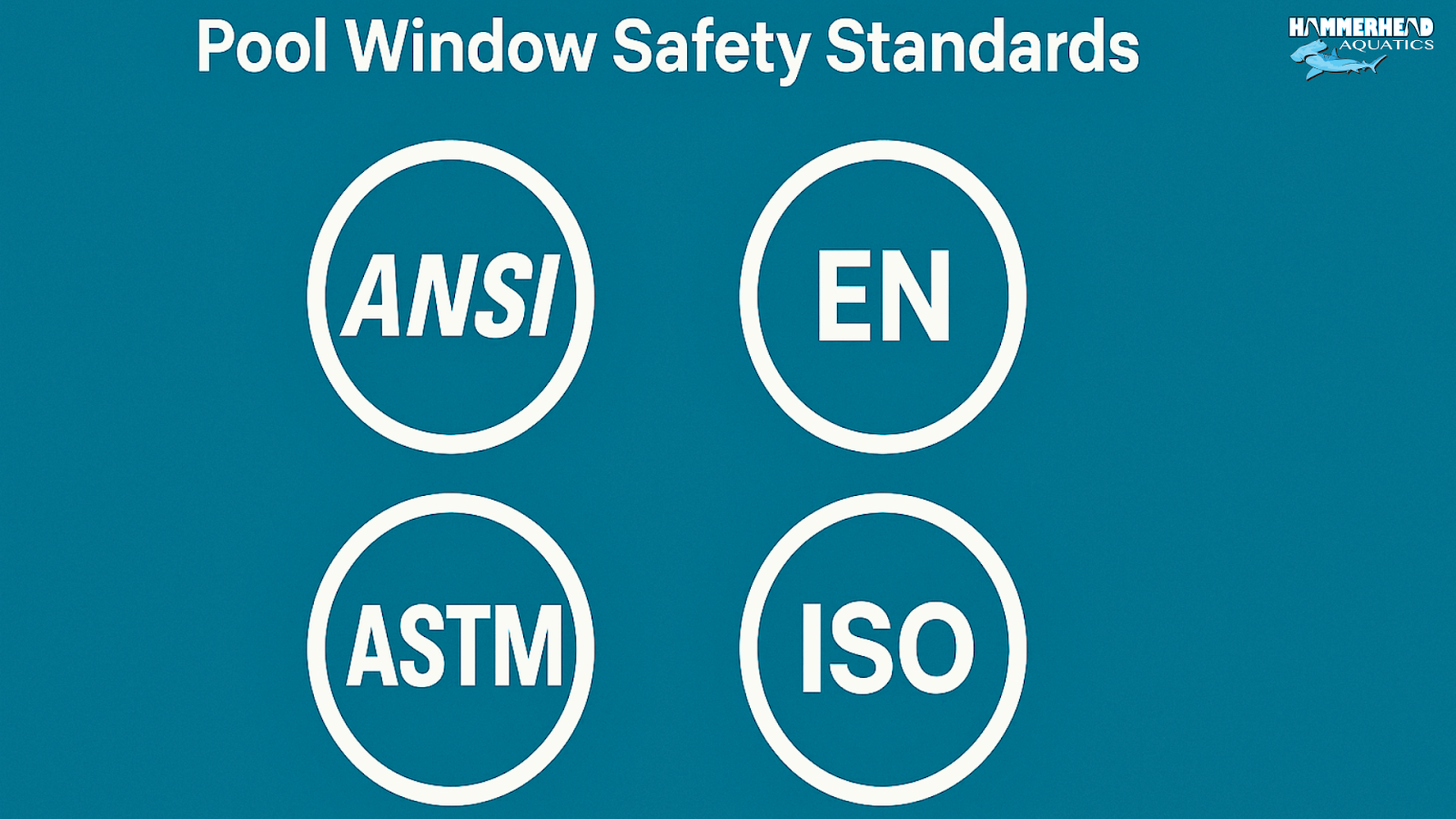
To guarantee reliability, manufacturers follow international building and pool safety codes. These typically include:
- ANSI/NSPI Standards (US) for swimming pool structures
- EN 13474 (Europe) for glass in construction
- ASTM Testing for glass and acrylic strength
- ISO 9001 manufacturing compliance for quality control
In high-profile projects, such as hotel infinity pools or public aquariums, windows are also subject to third-party engineering certifications and load testing before installation.
Common Myths About Pool Window Safety
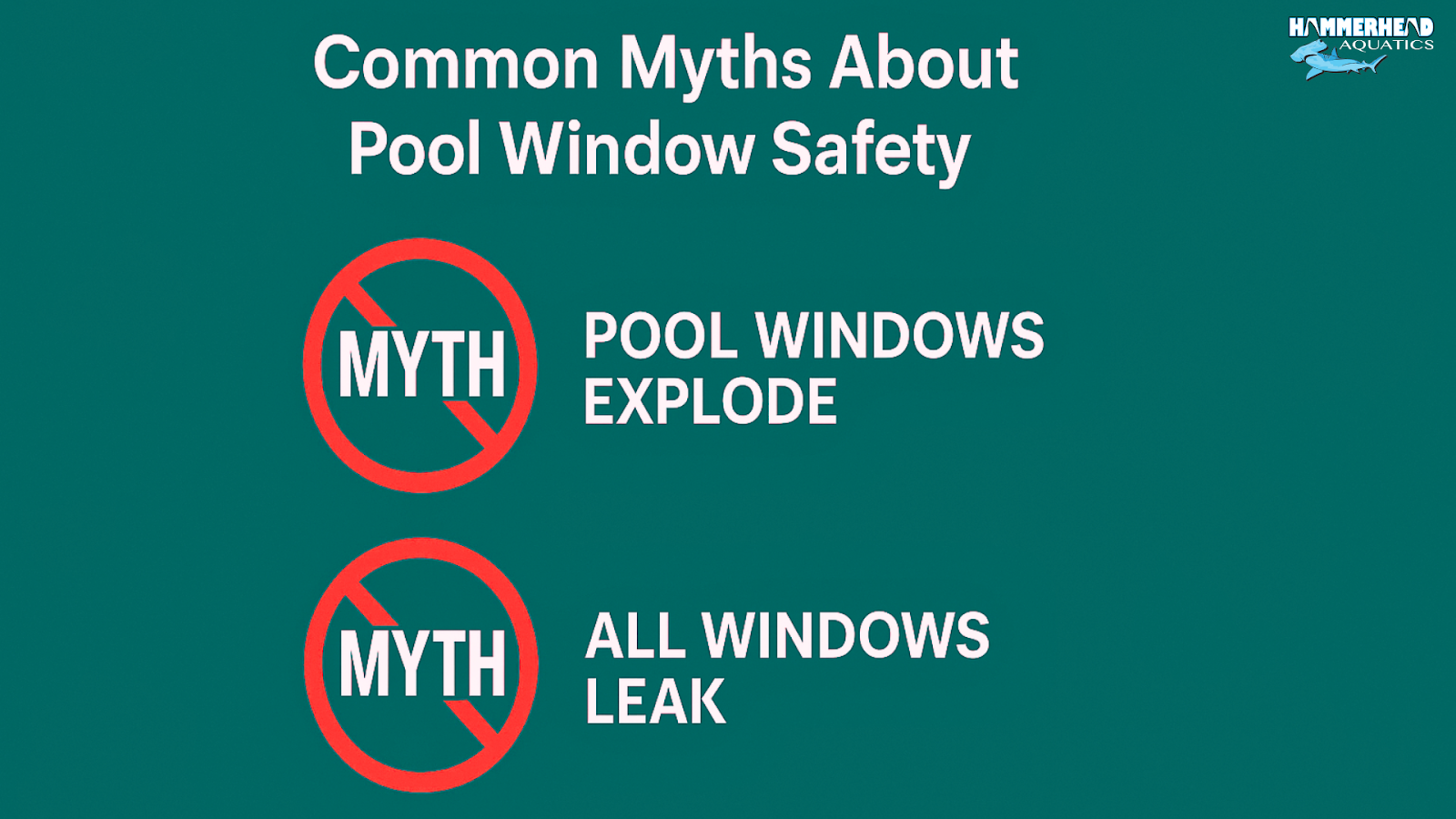
Myth 1: “Pool windows can suddenly explode under pressure.”
False. Properly designed panels are calculated with large safety margins. Even acrylic bends under stress rather than shattering.
Myth 2: “What if someone hits the glass?”
Pool windows are tested for impact resistance. A diving swimmer or even pool equipment bumping into the glass won’t cause structural damage.
Myth 3: “All windows eventually leak.”
Leaks are almost always a framing or sealant issue, not a material failure. With expert installation and annual inspections, leakage is extremely rare.
Factors That Actually Affect Safety
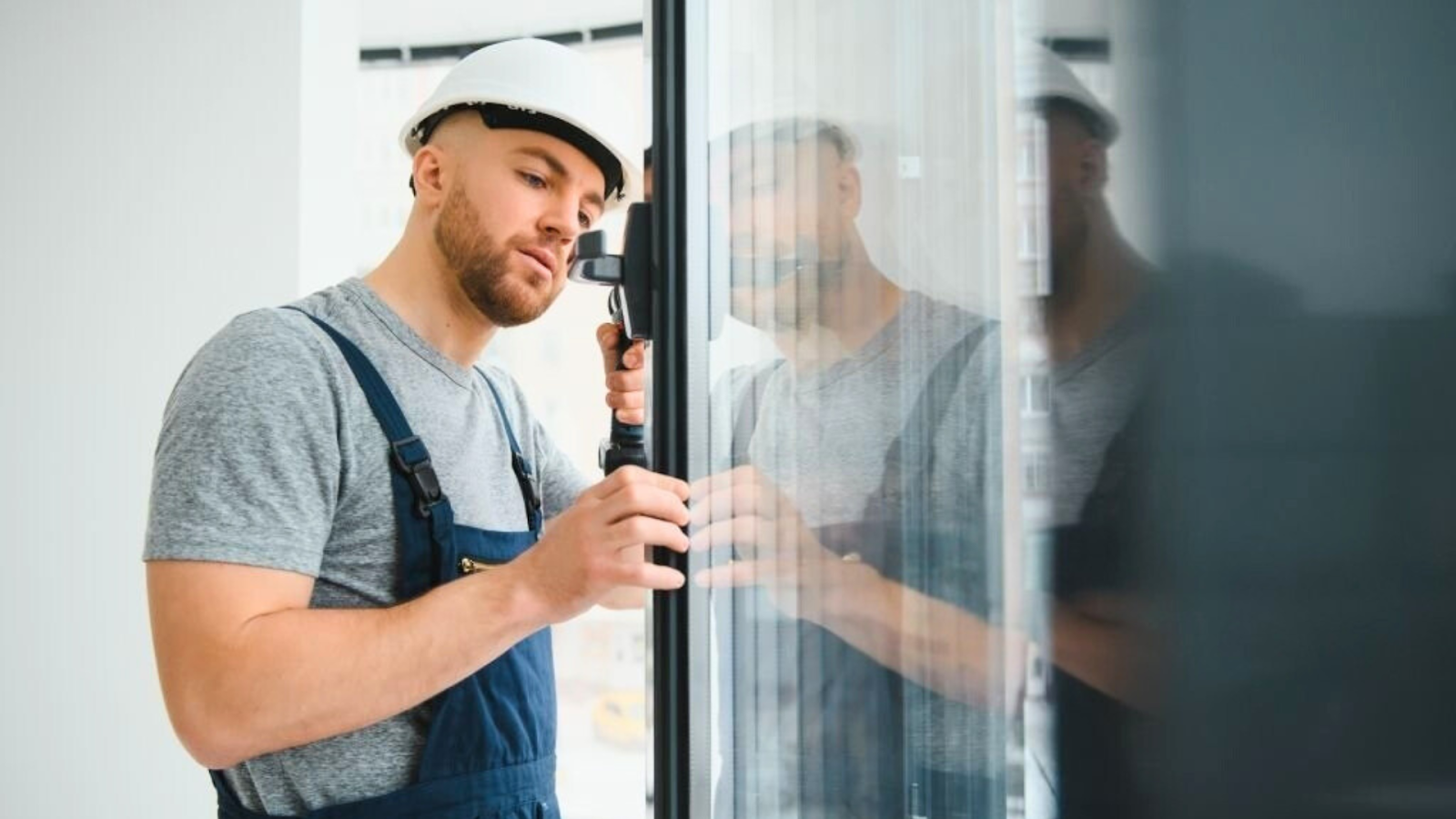
- Engineering & Design
- Panel thickness is calculated based on water depth, panel size, and load.
- A 3ft-deep residential pool window won’t require the same spec as a 12ft-deep dive tank.
- Panel thickness is calculated based on water depth, panel size, and load.
- Framing & Anchoring
- The frame supports most of the load. Weak framing = weak system, even with strong glass.
- The frame supports most of the load. Weak framing = weak system, even with strong glass.
- Water Chemistry
- Poor chemical balance can damage seals or cause surface etching over years. Regular testing avoids this.
- Poor chemical balance can damage seals or cause surface etching over years. Regular testing avoids this.
- Maintenance
- Annual inspections ensure seals stay watertight and surfaces stay clear.
- Annual inspections ensure seals stay watertight and surfaces stay clear.
Glass vs Acrylic: Which Is Safer?
Both are safe when engineered correctly, but they perform differently:
- Glass: Harder, scratch-resistant, long-lasting clarity. Best for flat panels in cooler climates.
- Acrylic: Lighter, customizable, allows massive spans or curves. Flexible under stress, but scratches more easily.
👉 Bottom line: Safety isn’t about glass vs acrylic. It’s about correct engineering and professional installation.
Final Thoughts: Pool Window Safety Comes Down to Expertise
So, are pool windows safe? Yes, absolutely.
The key is choosing the right material for your project, following tested safety standards, and working with professionals who know how to design and install them correctly.
A pool window is more than a luxury feature; it’s a structural element that requires the same precision as the pool itself.
Expert Advice on Pool Window Design & Safety
At Hammerhead Pools, we’ve installed safe, durable pool windows in projects ranging from rooftop spas to Olympic training facilities. With over three decades of expertise, we don’t just sell panels; we engineer peace of mind.
Contact us today for a consultation. Whether you’re building a residential pool or a commercial project, we’ll help you choose the right window solution and ensure safety from day one.
FAQs About Pool Window Safety
1. Are pool windows strong enough to hold back water?
Yes. They are engineered for hydrostatic pressure and tested to withstand loads far greater than everyday pool conditions.
2. What’s safer: glass or acrylic pool windows?
Both are safe. Glass is more resistant to scratches and surface wear, while acrylic is lighter and allows larger spans. Your use case determines the safer choice.
3. Can a pool window break if someone jumps against it?
Highly unlikely. Windows are designed to withstand significant impact. A diver colliding with the panel won’t cause failure.
4. How do I make sure my pool window won’t leak?
Hire certified installers and request annual inspections. Most leaks come from framing or sealant degradation, not the window itself.
5. Do pool windows meet building codes?
Yes. Quality windows are built under international standards (ANSI, EN, ASTM) and certified by engineers for safety compliance.
6. How long does a pool window last?
Glass windows can last decades with minimal maintenance, while acrylic windows may need polishing every few years but still perform reliably for 20–30 years.
The safety of a pool window depends not just on material but also on expert design, load testing, and professional installation. For homeowners and businesses, the smartest choice is to work with experienced builders who understand safety codes and engineering standards. At Hammerhead Pools, we combine three decades of expertise with certified installation practices to ensure every pool window is strong, safe, and built to last. Contact us today for a consultation and let us engineer your peace of mind.











